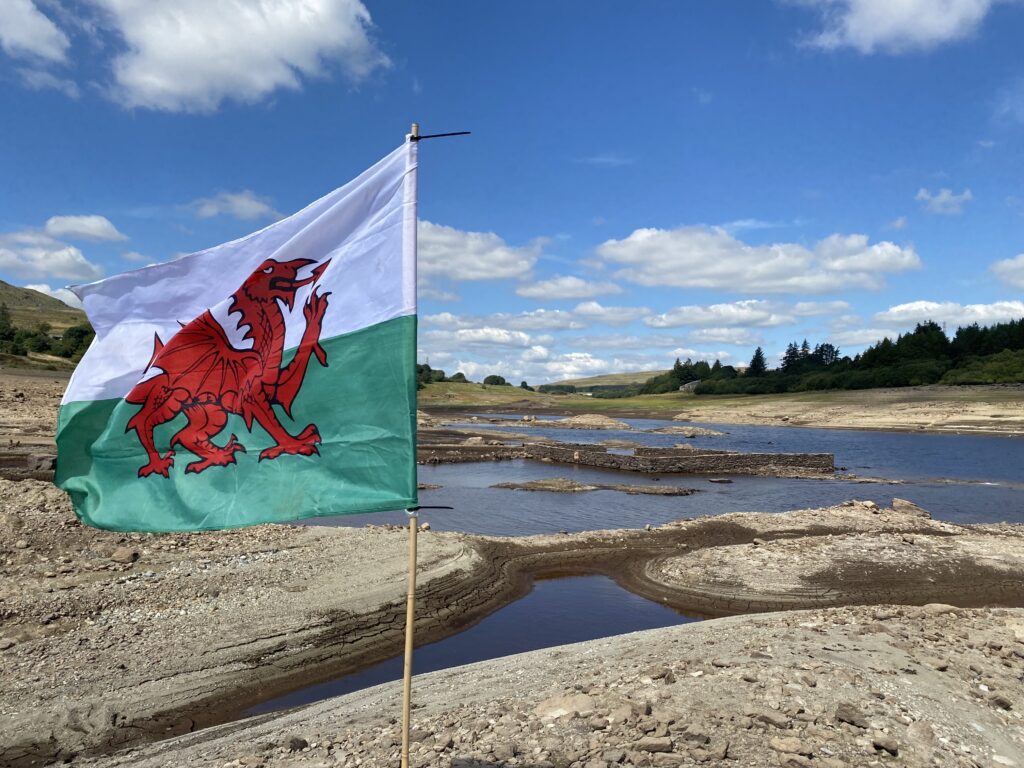Adam Somerset examines ‘Tryweryn: A New Dawn?’, Wyn Thomas’ third instalment of books that explore the cultural and political history of Wales.
Ten years ago, in 2013, Wyn Thomas published Hands Off Wales. It was a 400 page study of the militant campaigns of the 1960s which culminated in the trial that sentenced John Jenkins to a ten-year prison term. The book came with 40 pages of appendices, notes and index. In 2019 he wrote the official biography of John Jenkins. Tryweryn: A New Dawn? completes a remarkable and probably definitive trilogy of the ructions that shook that time.
The new book comes with the same weight. Its 476 pages end with 100 pages of appendices, timeline, notes, bibliography and index. The level of scholarship is high, and the research is spread across a wide spectrum of sources. The list of newspapers alone runs to 33 titles. The many interviewees range from activists to members of the Westminster Cabinet. The exhaustiveness of the research makes itself felt throughout, flowing into the five substantial chapters and conclusion that make up the main text.
The level of detail is consistently deep. Liverpool assessed other sites for its augmented water supply. Ullswater would have meant sharing with Manchester and was rejected on that account. The geology of Cwm Tryweryn, ground rock and clay, was advantageous. The availability of raw materials locally meant a significant reduction in project costs. At the opening of the dam on 21st October 1965 stones were thrown, the booing and catcalls were unbroken. Cries from the crowd ran ‘Twll din pob Sais’ and ‘Drown your own valleys.’
The last chapter addresses the legacy of Tryweryn. Establishing the precise cause and effect in history is often an elusive task. Thomas cites Gareth Miles to the effect that Tryweryn gave a powerful symbol of powerlessness to the nationalist cause. But a page later, Rhodri Morgan is cautious on the link to the establishment of the Assembly, saying that Tryweryn had little resonance in the south by the late 90s.
In Brittle with Relics (Faber & Faber 2022), Richard King cited Dafydd Iwan on the cultural significance of Tryweryn: ‘Tryweryn has grown over the years’, he said, ‘as a symbol of the inability of Wales to stand up for itself and take care of its own resources. It’s a very potent symbol.’
Historians are not there to be romantics. Capel Celyn was a community made up of human beings. A primary interviewee asserts that the community had its strands of animosity no less than any other. Prominent Wesh figures such as R S Thomas, Gerallt Lloyd Owen, Rhodri Gwynlliw Jones, Huw Jones and Nicky Wire discuss the cultural effect of the flooding.
The cultural tension is shown at the start. Thomas writes: ‘the entire Tryweryn issue still appears in the eyes of many in Wales to be an open wound and a wound, at least for the foreseeable future, that looks unlikely ever to heal.’
By way of apposition the book’s last paragraph contains: ‘it is unhealthy for a nation…to hang its identity on the peg of injustice and past grievances…whether they occurred sixty or six hundred years ago.’ It concludes: ‘Wales emerged stronger, both politically and culturally.’
There is some vibrant phrasing at play. Bessie Braddock is possessed of ‘an outspoken manner and bellicose nature.’ Lord Elystan Morgan called her: ‘a fighter for her tribe; a real Boadicea,’ and, ‘raucous…a character that asked for and gave no quarter.’ With regard to the bill in Parliament, Plaid Cymru had suspicions that ‘Merioneth County Council had adopted a slippery stratagem all along.’ Equally it was not an easy time within Plaid Cymru. ‘Harry Webb considered [Gwynfor] Evans’ decision a display of appeasement akin to Plaid Cymru’s “Munich”.’
The politics of Wales, Merseyside and Westminster are mapped out in close-up detail.
A delegation from Wales went to Liverpool; the meeting echoed to shouts of ‘Throw them out’ and ‘Clear off back to Wales.’ Alderman Braddock, leader of Liverpool City Council, later had some remarkable words: ‘We have seen those Welsh people who, because of the failure of their own country to provide a livelihood for them, have left their own land almost depopulated. Except that is, for the poverty-stricken area of South Wales, which the Englishman has had to put right.’
Historian Martin Johnes says of the book: ‘its analysis is both exhaustive and even-handed.’ These are qualities that count. The even-handedness means that a multitude of voices are heard.
All articles published on the welsh agenda are subject to IWA’s disclaimer. If you want to support our work tackling Wales’ key challenges, consider becoming a member.





